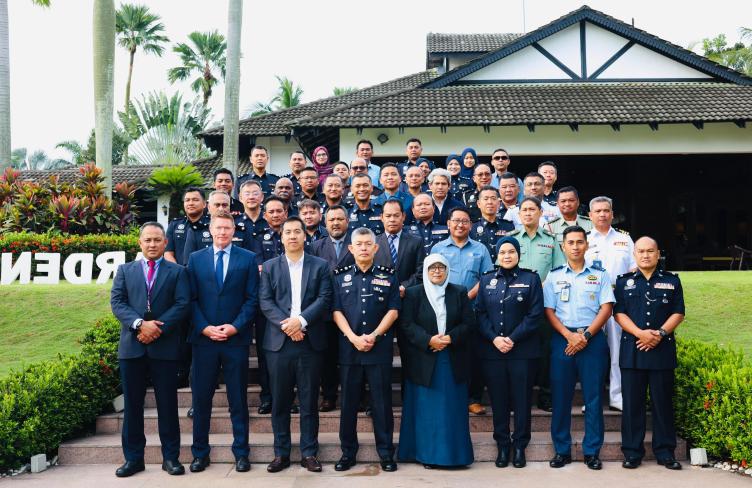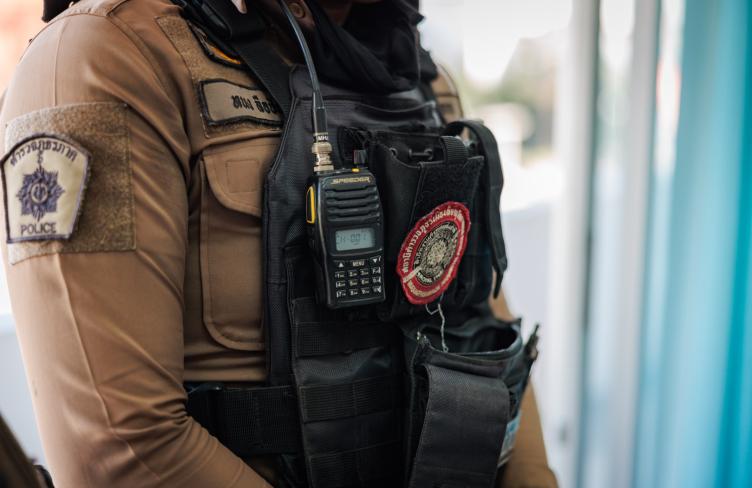
Alka Pradhan currently serves as Human Rights Counsel for Ammar al Baluchi at the Guantanamo Bay Military Commissions, and as Associate Counsel for Al Hassan at the International Criminal Court. She was also a member of the expert drafting committee for the Méndez Principles on Effective Interviewing. In this blog, she explains why it is essential that torture and coercion is eliminated from justice systems and how the Méndez Principles can help States achieve this.
From my experience working with defendants, there are three distinct impacts on individuals after they have been tortured. The first, of course, is physical. They have scars from the beatings, they have damage to their ligaments and joints. They have physical pain every day. The second impact is psychological. Certain things – sounds, smells, the tone of someone’s voice – can trigger the fear they experienced during their torture. These triggers can last a very long time, perhaps even for the rest of their lives. And they can be accompanied by, and exacerbated by, conditions such as post-traumatic stress disorder, anxiety, depression and panic attacks. These responses will manifest differently for every person, but every person has both the physical and psychological remnants of their torture. The third impact, which is often overlooked, is the psychological anxiety of being separated from your family. Once you have been tortured, there is a constant fear that something similar may happen to your family and that, because you are detained or because you are debilitated from that torture, you will be unable to protect them.
Beyond this impact on the individuals, torture also compromises investigations. Put simply, when individuals speak out of fear, those statements are not voluntary. And if they are not voluntary, they cannot be reliable. Once someone is tortured, it is extraordinarily difficult, if not impossible, to remove the fear associated with that torture. And so an investigator or prosecutor might say, "Well, I didn't torture them personally. If I’m not torturing them while I'm asking them questions, then what they say to me must be voluntary." But that is false. It is very important for everyone in our justice system to understand just how delicate the balance is once someone has been tortured. Investigators, prosecutors, judges and lawyers all need to understand how coercion manifests after torture. It's not just the act of waterboarding or beating. We need to closely monitor everything that comes afterwards to ensure there is no additional coercion.
This is where the Méndez Principles on Effective Interviewing add so much. They are essentially an ‘A to Z’ guide of practical steps that can be taken at every juncture in the justice system, starting with the investigation process. How do we investigate? What safeguards do we put in place to ensure that any coercion is minimised? Then we get to detention. Detention is, in and of itself, a coercive situation. People have lost their agency. The Méndez Principles offer practical advice to investigators, prosecutors and others on the safeguards that can be put in place to ensure there is no additional coercion. And the benefits extend well beyond investigations. The Méndez Principles are very clear on what judges should be looking for, what questions they should be asking, and what should call their attention to potential coercion that could taint the case in front of them and, therefore, taint a potential judgment.
There were two priorities for me in contributing to the drafting process of the Méndez Principles. The first was to ensure that the Principles clearly communicate that non-coercion is the responsibility of every member of the justice system. This must be respected at all times: from the moment someone is taken into custody, or simply interviewing them as a witness, right through to a potential conviction and post-trial detention. Every member of that chain has a duty to contribute, to educate themselves and to abide by the standards of non-coercion.
Secondly, my legal experience deals with cases that arise out of terrorism situations, security situations or war situations. These situations tend to be characterised by States as “special” and requiring urgent attention. They are also situations where “special techniques” are justified for gathering evidence, which often ends up including torture or, at the very least, being highly coercive. And so my other priority was to ensure the Méndez Principles would be applicable in all circumstances. We made clear throughout that these Principles apply equally in minor police investigations right through to terrorism cases that, in the past, may have been dealt with through secret detention or other means.
In drafting the Principles, we were struck by the fact that it has been known for centuries that torture is ineffective, immoral and illegal. There is a wealth of writing on the subject, a wealth of studies going back 4,000 years. We were able to draw on a rich variety of Western tradition, Eastern tradition, international law and domestic law. We also looked at different bodies of jurisprudence from across the globe. People may think that it was a challenge to pull together the law. It was not. We had extensive research to draw on. The difficulty was to distil that research into Principles that would also serve as a practical set of guidelines. Time will tell, but I think we were successful in doing so. And the good news is that body of research is available for anyone who wants to know, for example, the evidence base for Principle 2 or Principle 4.
One of the greatest strengths of the Méndez Principles is that, for the first time, we marry science with the law. Many people have said torture doesn't work, without explaining why. However, a lot of research has been done on this issue over the past 20 years. We know more now than we did two decades ago, and certainly, more than we did a hundred years ago, about why torture doesn't work. We can explain how the brain changes and how false memories are implanted in a person being tortured. The Méndez Principles draw on this science to explain why torture is ineffective. And I think that is tremendously powerful. If we can use this evidence to educate States, from local police all the way up to the judiciary, to ambassadors and those sitting on international courts, then we will shift the mindset to end torture and coercion. It will take time, but combining the legal and the scientific argument is essential.

